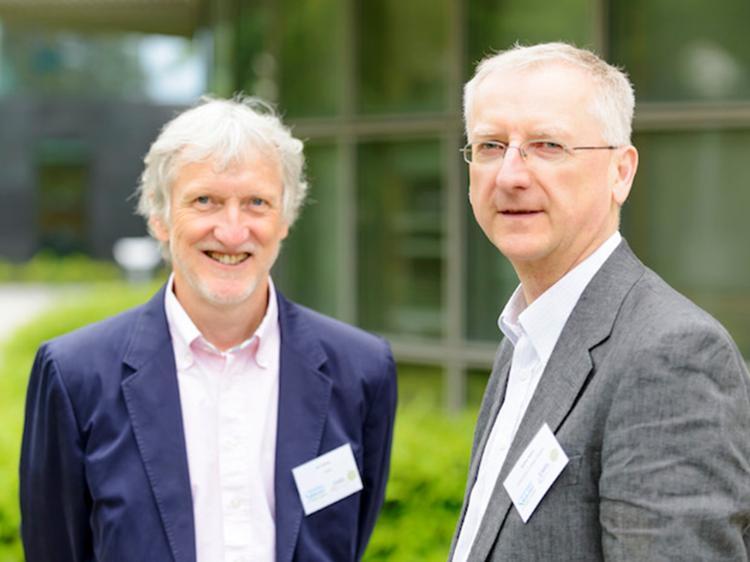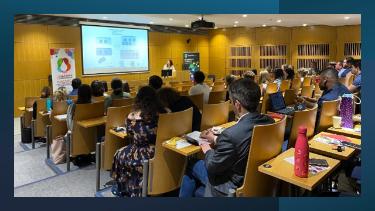SBI and the European Molecular Biology Laboratory sign memorandum of understanding

Profs. Mattaj and Kolch in Dublin earlier this year
Professor Iain Mattaj, Director General of the European Molecular Biology Laboratory (EMBL) and Professor Walter Kolch, Director, Systems Biology Ireland (SBI) have signed a Memorandum of Understanding (MoU) with the objective of enhancing cooperation between the two institutes. This is the first MoU agreement signed between EMBL and an Irish Institution.
EMBL is Europe’s flagship laboratory for the life sciences, with more than 80 independent groups operating across five sites. It is an inter-governmental organisation funded by public research monies from its member states.
EMBL enters into similar agreements/MoUs with certain institutions in associated member states, where parties believe that there is potential for further scientific cooperation. However, these agreements are not numerous. In the case of SBI, the agreement acknowledges mutual interest in potentially establishing a formal EMBL partnership at SBI in University College Dublin.
Today, the limitations of research progress arise from data interpretation rather than data production. EMBL researchers have been leading the way in mapping and interpreting the genome using model organisms. SBI researchers are using computational models to analyse human biological processes in an effort to understand diseases like cancer and develop diagnostics and therapies that are tailored to the individual patient.
EMBL have pioneered a model for successful molecular biology research that places emphasis on dynamic, highly interactive and interdisciplinary research groups; comprehensive training programmes as well as the latest technologies and methods.
Working together, the two institutions hope to build complementary research activities through joint projects and exchange of knowledge, data and personnel.
Earlier this year, SBI hosted EMBL scientists in a one-day joint scientific workshop aimed at focusing respective expertise and research capacities on the question of how best to cope with the huge quantities of data being produced by modern technologies as well as harnessing the potential of systems biology.

